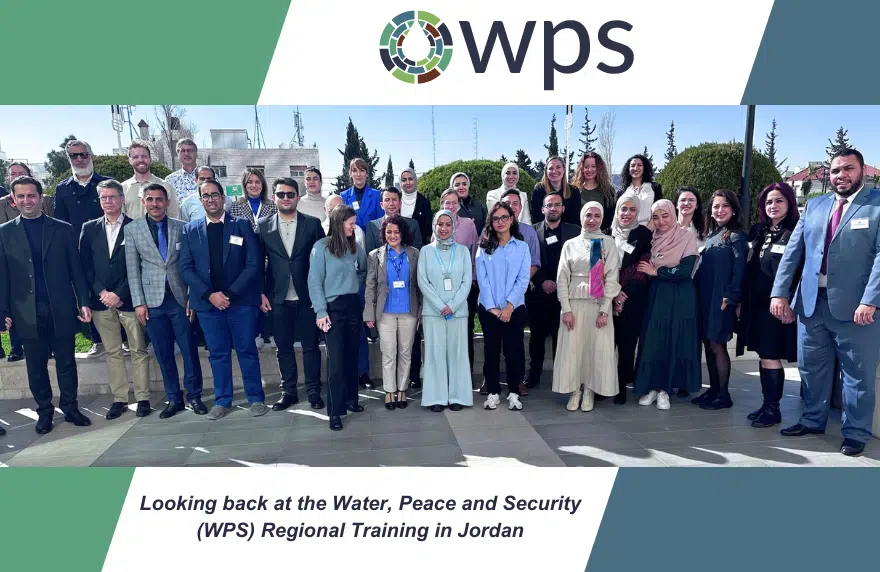The International Federation for Red Cross and Red Crescent Societies (IFRC) and the Water, Peace and Security (WPS) partnership have signed a Memorandum of Understanding for a 5-year strategic cooperation to address water-related conflict and instability around the world. This signifies a mutual commitment to jointly address the global risk of water-induced conflicts and promote sustainable water management practices around the world. The two parties value the many potential areas of collaboration at the global, regional, national and community level.
The IFRC and WPS wish to work together to advance global peace and security by addressing challenges along the humanitarian, development and peace nexus; supporting sustainable and equitable water resource and ecosystem management; building anticipatory action; and mitigating water-related conflicts while strengthening water-based cooperation and peace.
The Hague Centre for Strategic Studies (HCSS) will represent the WPS partnership and as such act as the coordinator of the MoU on behalf of the WPS partnership. During the launch event at the Stockholm Water Week in September 2024, HCSS senior strategic analyst Laura Birkman stated, “HCSS is proud to coordinate this effort with the IFRC on behalf of the WPS partnership. Combining our expertise on the water-peace nexus with the world’s largest humanitarian network significantly enhances our ability to address water-induced instability in fragile regions on a meaningful scale.”
Maria Pinzon, IFRC Global Head of Water Systems Strengthening, explained IFRC’s motivation for the collaboration: “Our National Societies have been identifying tensions in communities around water. Joining efforts with The WPS Consortium will enable communities to learn, understand, and take action.” WPS pioneers innovative tools and services that empower stakeholders to identify, understand, and address water-related security risks at an early stage and creating opportunities for water-based cooperation and peace. This process is built on a foundation of global data collection and validation, and a deep understanding of how water scarcity or floods can manifest as social consequences in local contexts.
In the short term, IFRC and WPS aim to reduce water-related tensions at the community level. Long-term goals include enhancing community resilience by building capacity for equitable and sustainable water cooperation, ultimately reducing water-related instability and migration. The initial focus of the partnership will be on supporting the Red Cross and Red Crescent National Societies in the MENA region, starting in September with an inception workshop taking place in Amman, Jordan.

About the IFRC:
The International Federation of Red Cross and Red Crescent Societies (IFRC) is the world’s largest humanitarian network of 191 National Red Cross Red Crescent Societies and over 17 million volunteers, delivering assistance to vulnerable communities worldwide, before, during and after disasters and health emergencies to meet the needs and improve the lives of vulnerable people without discrimination as to nationality, race, religion, beliefs, class or political opinions.
About the WPS Partnership:
The Water, Peace and Security (WPS) partnership, funded by the Netherlands Ministry of Foreign Affairs, mitigates water-induced conflict through cooperation on water resource management. The WPS consortium was established in 2018 with a clear mission: to facilitate timely, informed, and inclusive action in regions susceptible to water-related conflicts, thereby placing a crucial role in global peace and security.
For more information, contact: Nicola Chadwick, Mobile +31 621405472, Email: n.chadwick@un-ihe.org / info@waterpeacesecurity.org Coordinator of WPS communications.








